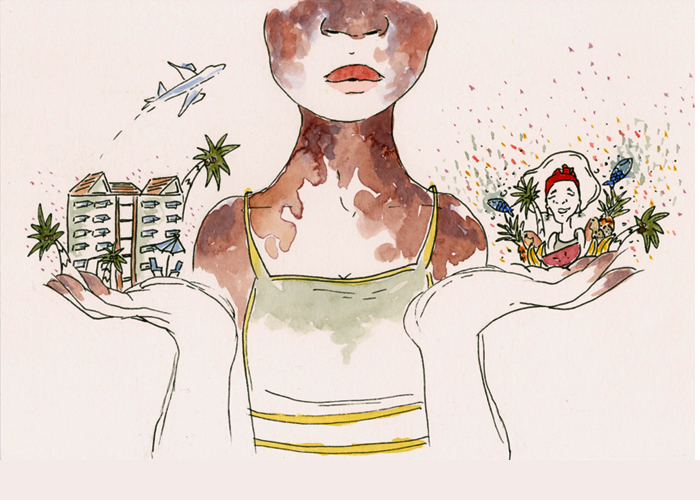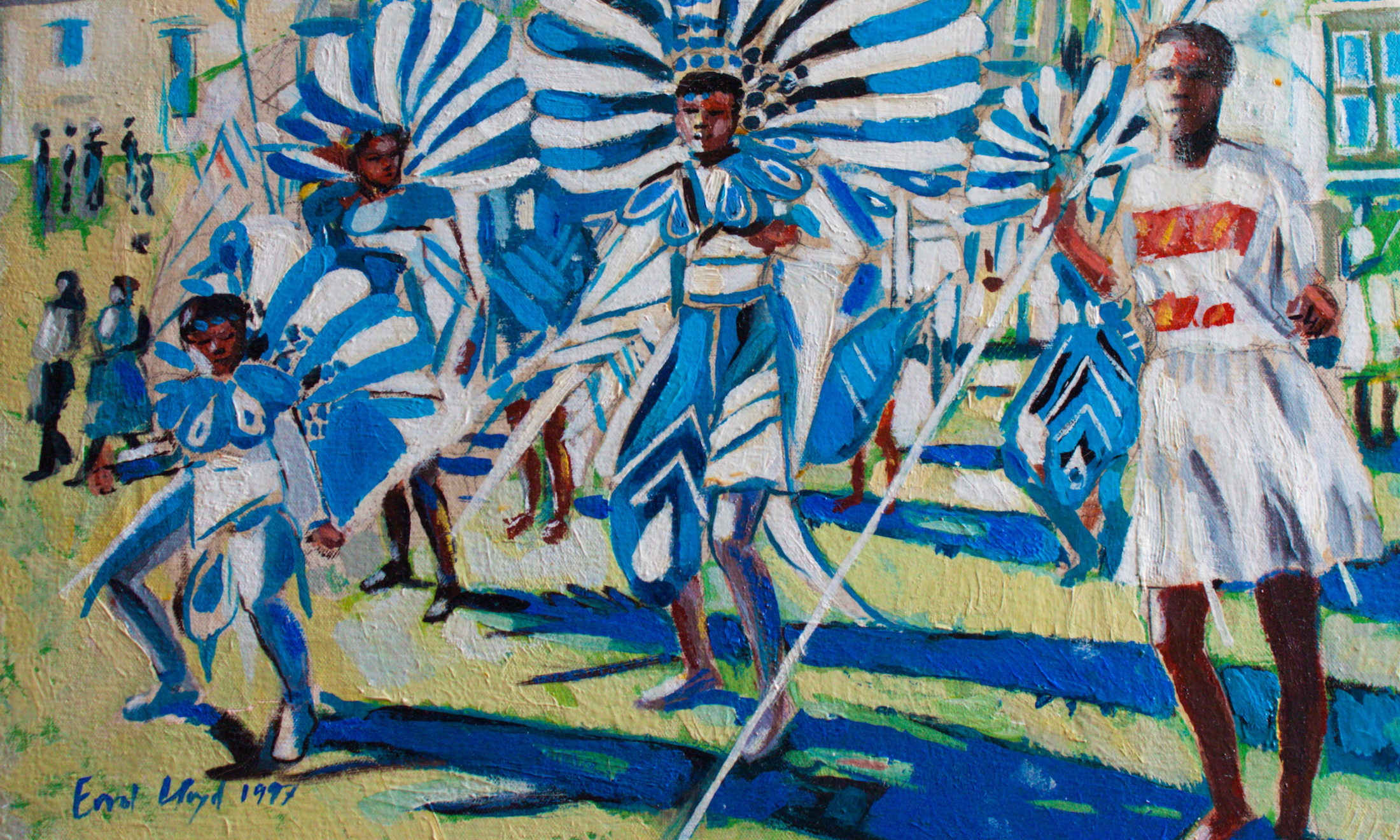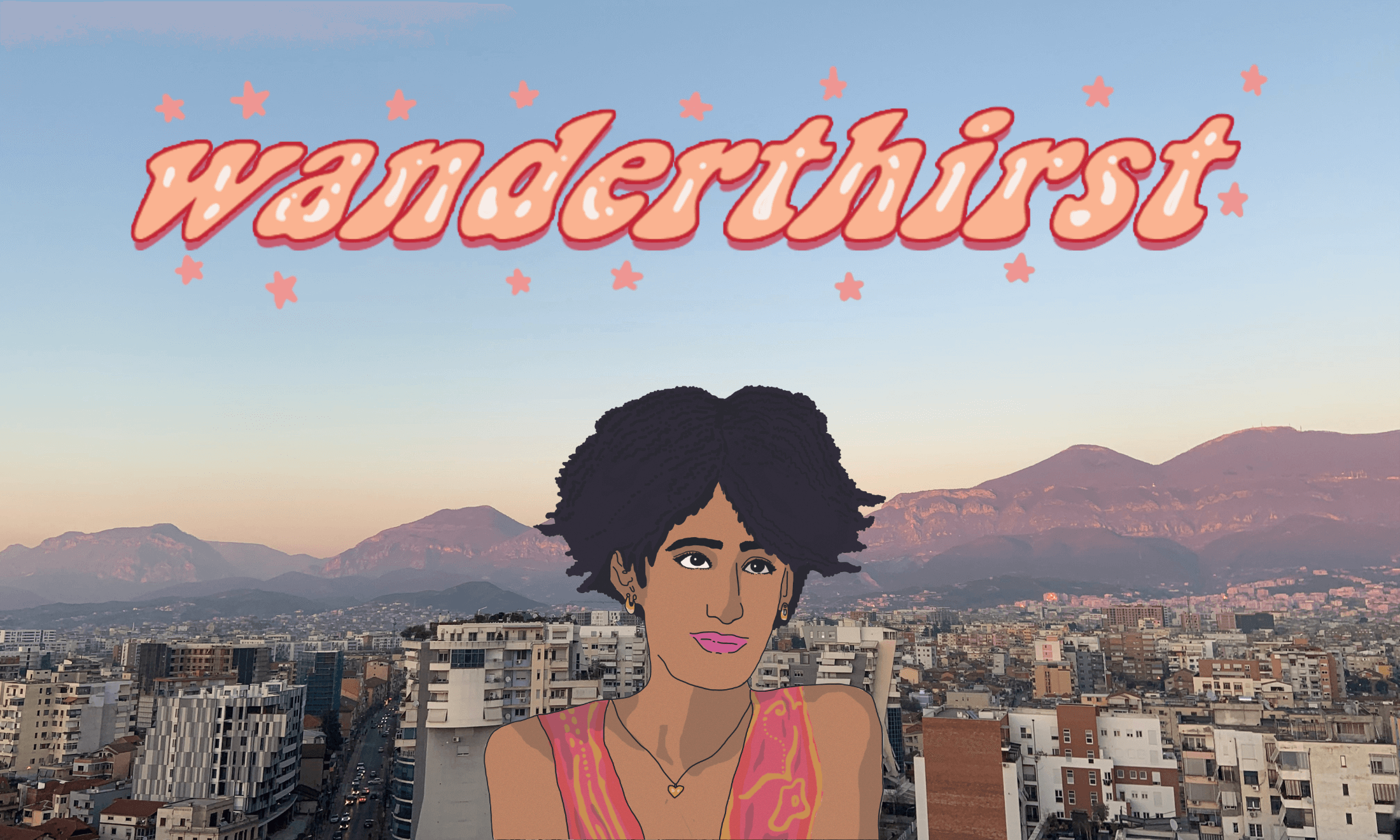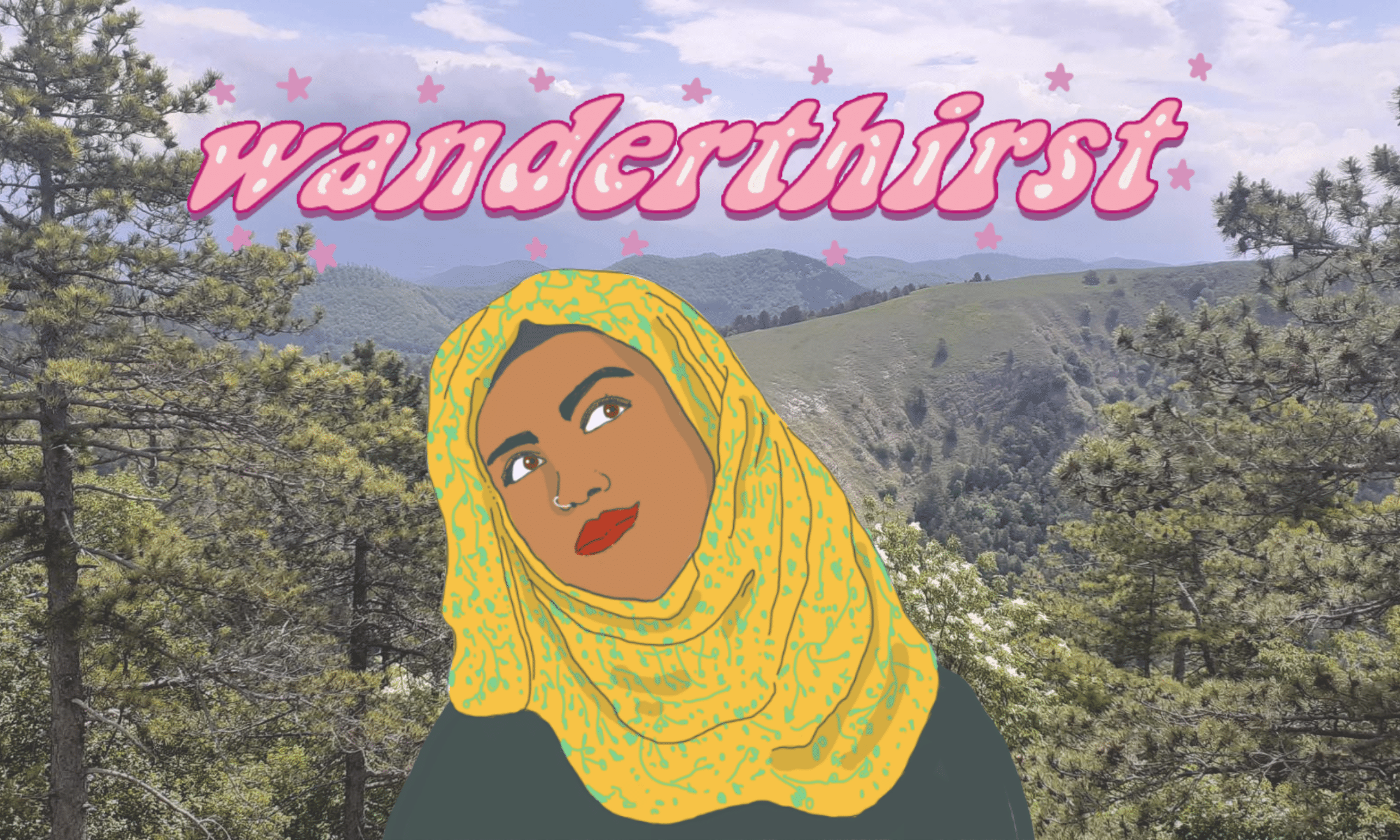
I cannot remember the first time I went to Jamaica. But sometimes when my dad is feeling nostalgic, he’ll pop in grainy and pixelated VHS tapes from the nineties and there I am. Me, clad in a frilly, neon-coloured bathing suit with my hair salt-water soaked and tied around circular barrettes. In between bouts of splashing around in an ocean that was both crystal clear and turquoise, I’d run back up onto the powdery shore to my beach towel. Once there, video-me stuffed her face with bully beef and hardo bread sandwiches and licked the sticky-sweet remnants of suck-suck from between her fingers. My earliest memories of Jamaica come in flashes just like scenes from those old videos.
Recently, a friend’s girlfriend went to the island on holiday and initially, I was excited to hear all about it. But the more he spoke, the more my enthusiasm waned. This was no ordinary trip to the Caribbean. No, she and her sorority sisters visited the island while placed gently into the lap of luxury. They stayed just off the coast of Montego Bay in a villa that came fully equipped with staff that waited on them hand and foot with smiles painted across their brown faces. That is not my Jamaica.
“I always felt uncomfortable listening to their stories, but I was also unsure why these family excursions never sat well with me”
I am a second-generation Jamaican woman from New York. But growing up against the backdrop of the plush lawns and white nuclear families associated with suburban Long Island made navigating my own cultural heritage a bit tricky. I mean, sure, I was black. But I was also Jamaican, which added another layer of “otherness” that I felt ill-equipped to handle during my already awkward teen years. Nothing highlighted this insecurity more than when a classmate, with their freshly tanned skin and braided blonde hair spoke excitedly about their trip to the Caribbean. I always felt uncomfortable listening to their stories, but I was also unsure why these family excursions never sat well with me.
***
When my mother and I began planning our grand return to Jamaica after years of being away, things immediately felt different. This time around we would be staying in accommodation in Ocho Rios instead of with family. From the moment we touched down onto the tarmac and made the long drive from Mo Bay to Ochie, I realised that this was no longer the Jamaica I remembered from my childhood.
Along the highway, the sprawling landscape gave way to resort after resort after resort. Grassy hillsides were interrupted by intimidating concrete structures: Sandals, Hyatt, Hilton, Iberostar. Our van driver rattled off the names of each one as we whizzed past and I thought of the hundreds of people sequestered behind those all-inclusive walls. Most of whom would only leave their rooms to go down to the pool and bar. Or for meals where they might stick to “safe” dishes like pizza and burgers. Perhaps the more daring guests would try a bite or two of a less spicy and more palatable version of jerk chicken. And then after a week they would go home and tell of the wonders of Jamaica and how delicious the food was and how pleasant the weather stayed.
I felt that familiar, yet still unrecognisable unease in the depths of my stomach once again. But if my mother felt a similar discomfort at all, I couldn’t tell.
She’d been talking about stopping at a roadside stall from the moment we stepped off the plane. I imagined that, like me, many of her childhood memories of home were tied up in food. When we were finally able to stop at a market, I was awed at how easily she was able navigate this space. I was jealous at how quickly and seamlessly she adapted to the island pace. It was like she’d never left.
The market itself was dizzying and chaotic. Older women in long skirts with their hair tied up in scarves and tucked away under sunhats, sat on stools scraping and scaling red snapper and porgy. And there were edible mountains of mango, guineps, and cherries as far as the eyes could see. I watched as my mother poked and prodded june plums and sweetsop until she was satisfied with their ripeness. I looked on as she haggled fiercely and confidently with one fruit vendor. I could tell he was as impressed with her as I was.
My own patois is shaky and uncertain from decades of dormancy; it is filled with breathy and staccato starts and stops. It is nothing like the steady, lilting cadence of my mother’s.
“Ah where yuh from?” he asks her.
“Kingston,” she answers with a Jamaican boastfulness I’m convinced is instilled at birth.
“Mhmm, a city gyal.”
***
Objectively, I recognise that tourism is a substantial part of Jamaica’s economy. 50% of the country’s total foreign exchange earnings come as a direct result of tourism. In fact, one in four people possess jobs within the sector. Without the money that comes from tourists, life would in Jamaica would be a lot more difficult for the locals. Taking away tourism would mean taking away hundreds of jobs. It would be mean taking away their livelihoods and their ability to support themselves and their families.
But at the same time I cannot help my bitterness.
“There exists a cruel irony in Jamaican natives providing the Becky’s and Barry’s of America and Britain with a dream experience, while never getting a chance to do the same for themselves”
There exists a cruel irony in Jamaican natives providing the Becky’s and Barry’s of America and Britain with a dream experience, while never getting a chance to do the same for themselves. When hospitality staff work tirelessly to make hotels and villas feel warm and welcoming, they remain barred from the grounds after work hours; pushed off this “prime real estate” that is the literal lands of their ancestors. The entire cycle is too reminiscent of modern day imperialism for me to bear.
I think perhaps I will always have a conflicted relationship with tourism. But much like my own Jamaican identity, there is a duality that exists. I love Jamaica. I love that it is easy and convenient for me to venture there and back. And that I never have to worry about where to stay even though most of my family have long-since moved stateside. I love Jamaican culture, Jamaican food, and Jamaican music. I don’t mind sharing these aspects with outsiders. But, I loathe the very idea of a person taking advantage of the island’s gorgeous weather and beaches without ever bothering to take a step off the resort and appreciate everything she has to offer.









